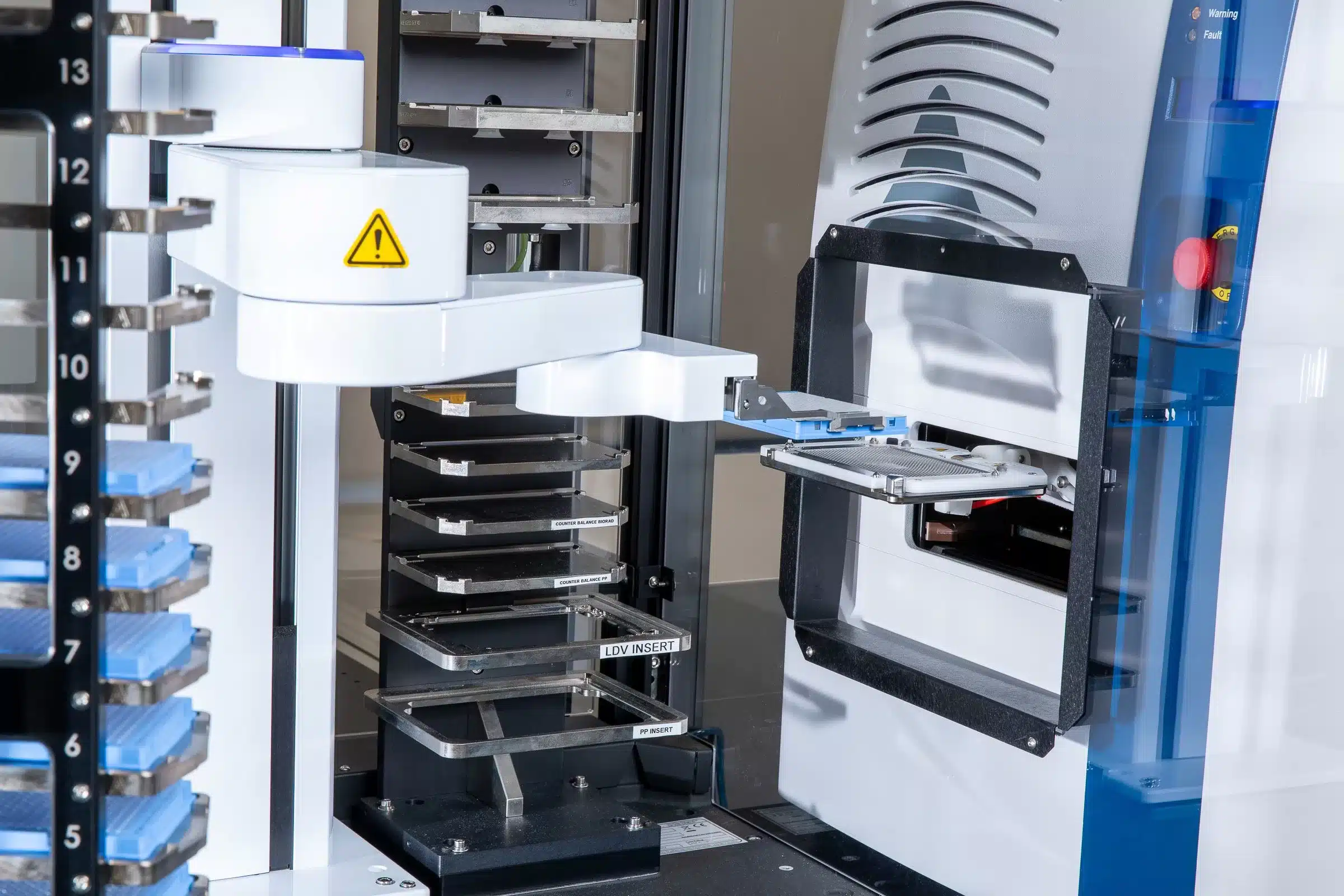Immune profiling Use high-throughput sequencing to profile immune repertoires
Use single-cell sequencing to characterize the immune repertoire, investigate the cellular response to pathogens, and pin down autoimmunity mechanisms with immune profiling.

Applications
The human immune system is an intricate network of billions of distinct cells. Utilizing the high-throughput 10x Genomics Single Cell Immune Profiling assay, we can identify the innate and adaptive immune cells by gene and cell-surface protein expression, full-length V(D)J-sequences for B cell and T cell receptor repertoires, and antigen specificity.
Discover antibody and cell immuno-oncogenic therapies
With the success of immune-based therapies against various cancers, it has become increasingly important to identify immune cells infiltrating the tumor microenvironment and their associated antigens.
By identifying B cells producing antibodies with high specificity and affinity for tumor antigens, you can accelerate the development of recombinant therapeutic antibodies. Identifying TCR sequences that recognize tumor-specific antigens and neoantigens can help design chimeric antigen receptors that target the same antigens; these CARs can be transduced into T cells to generate tumor-targeted CAR-T cell therapies.
Stratify responders and non-responders
Chemotherapy response is known to vary by patient and patient-specific variations in the tumor microenvironment play a role in cancer evolution. Single Cell Immune Profiling can aid in the stratification of response in clinical trials, thereby improving therapeutic strategy success and patient survival.
Map B and T cell clonality
You can identify the full spectrum of B-cell and T-cell receptors present in a sample with single-cell immune profiling. Its unbiased nature enables in-depth study without prior knowledge.
By integrating immune repertoire information with cell-type identity as measured by the single-cell transcriptome, you can gain important insights into B and T cell clonality and the immune response to specific pathogens and therapeutics.
Custom Gamma-Delta T cell analysis
Our in-house developed protocol provides Gamma-Delta T cell (γδ T cell) receptor sequencing for single-cell analysis of this promising cancer immunotherapy candidate. For example, accurately measure clonality in isolated T cells, after expansion of a (CAR) T cell population, or study heterogeneity in patient tumor infiltrates.
Find out more about our protocol by downloading the γδ T cell Immune Profiling poster.

Single Cell Immune Profiling of Gamma-Delta T cells
Learn about our new approach to sequencing gamma-delta T cells (γδ T cells) for complete immune characterization.
Case studies

Immune Profiling of atherosclerosis reveals new therapeutic potential
A team of scientists uses 10x Genomics Single Cell Immune Profiling to characterize T cells in the atherosclerotic plaque. Their results redefine atherosclerosis as an autoimmune disease.

Mechanism of disease: a new hypothesis for atherosclerosis
To elucidate atherosclerosis’ mechanism of disease, Sheffield University researchers analyzed the transcriptomes of single endothelial cells.

Drug Discovery
for Precancerous Liver Disease
Here’s the story of how SORT-seq helped advance a novel drug candidate for liver cancer into clinical trials.
Our services
We offer single-cell and bulk transcriptomics.
Our R&D team is actively developing novel single-cell sequencing technologies,
multi-omic applications and custom solutions. Our standard services are listed below. We also offer sequencing of Illumina libraries.
Single-cell sequencing
Pooled cells
Recent publications
Nature Cardiovascular Research
Single-cell T cell receptor sequencing of paired human atherosclerotic plaques and blood reveals autoimmune-like features of expanded effector T cells
Nature Communications
A public antibody class recognizes an S2 epitope exposed on open conformations of SARS-CoV-2 spike
How can we help?
Want to supercharge your project with our services?
Connect with our PhD-level scientists to discuss your biological question, timeline, sample types, and other customizations for your project.




